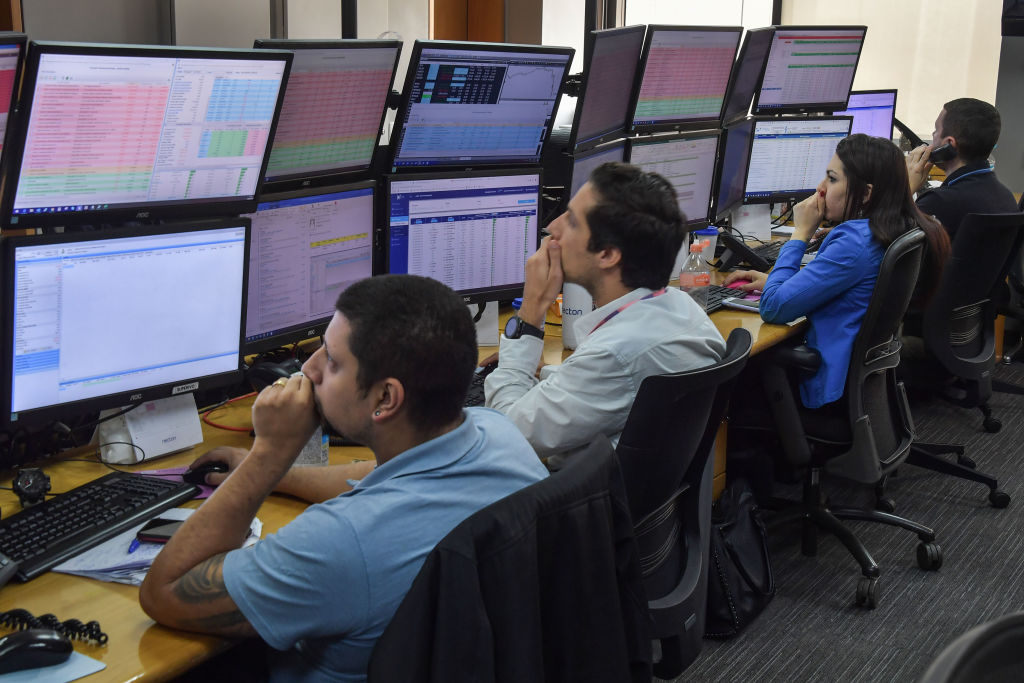Not long ago, I got a call from a New York-based accountant asking if what he was seeing was true: a Brazilian savings account statement showing double-digit monthly returns. “Oh yes,” I told him. It was absolutely normal – and the best deal in town! Just leave your cash parked in a bank and watch it grow.
Fast forward just a couple of years and, well, things have changed. At 2.25%, the basic interest rate has been cut eight times in a row since last year. If you’re an old Brazilian like me, a rate that low sounds like science fiction.
Granted, the pandemic has forced Brazil’s monetary policy committee to bring interest rates down much further and faster than expected. But even before COVID-19, rates were entering uncharted territory. With rates so low, historically risk averse investors have been turning away from once safe investments and looking for returns elsewhere – with a potentially significant and long-term impact on the way everyday Brazilians save, invest and start companies.
“I expect two more cuts this year, bringing the Selic rate to 1.5%,” Thais Marzola Zara, senior economist at LCA Consultores, told AQ. “We will start to go back to normal next year, but that new normal will still be a historical low range for Brazil.”
It wasn’t that long ago…
When I was a young woman, the overnight rate was still a regular part of dinner-table conversation. Trying to balance my first checkbook back in the 80s was a useless exercise: the balance changed daily according to the “monetary correction” calculated each night to adjust for inflation – leaving something left over for the banks, of course.
The constant concern for the value of money that was already in one’s pocket affected generations of Brazilians, who came to see “investing” as just leaving their savings in the bank – assuming they were privileged enough to have an account, that is.
“We come from an investment culture that is averse to risk,” Rogério Santana, a client relations manager at B3, Brazil’s stock exchange, told AQ.
Just plain savings accounts, or if you had a little more money, a certificate of deposit or treasury bond were no-brainers. (Not that these were always real gains amid bouts of hyperinflation.) Stock market? That was for institutional investors who had to diversify. Otherwise, why bother with risk?
But we have arrived in a new world. CDs and savings accounts with double-digit returns are a thing of the past – and this new normal is forcing a change on the risk profile of Brazilian investors.
A growth engine
“Back in the 90s I wrote this paper about the role of capital markets in economic growth, and how it wasn’t an option for Brazil,” Alex Agostini, chief economist at Austin Ratings, told AQ. But now, though it may take another five to 10 years to fully grasp its effects, the change in capital markets is happening, Agostini said.
The number of individual investors in the B3 exchange doubled between July 2019 and April 2020, reaching two million people. The average investment ticket also came down, a sign the shift has started to reach small investors.
This “flight to risk” may change the way small and medium-size enterprises pursue growth. While interest rates have come down, bank spreads, which determine how much a bank loan will actually cost to the borrower, are still high. With everyday savers thus looking for diversified investments, it could give small cap firms a path toward cheaper financing by selling stocks or debt.
“People are changing their behavior and this is an incredible opportunity to build a small cap market in Brazil,” Agostini said.
Brazil is very much a blue chip country. IPO tickets are much higher than the global average, said Santana, to the tune of $600 million on average compared to around $100 million in Canada or Germany. Santana says the exchange itself is working to attract small to mid-size companies by cutting costs based on their revenue size and working with regulators to simplify listing rules.
Beyond stocks
Low interest rates aren’t the only thing working in small and mid-size companies’ favor, even in today’s tumultuous economy. Financial technology firms are bringing all sorts of tools to market that can help investors, entrepreneurs, sellers and buyers connect. And without the competition of double-digit returns from fixed income securities, even peer-to-peer lending or novel private equity schemes can become a lot more attractive to those holding the capital.
None of that, however, can be expected to have a huge impact overnight. Without bigger reforms, companies are not going to magically sprout from the ashes of the pandemic; COVID-19 has hit the small and mid-size market hard, with a sharp increase in bankruptcy filings. Brazil’s byzantine tax system is expensive and confusing, and tax reform is going to take a lot of political negotiation, something that Brazil has not been very good at lately.
There is also an often-puzzling bureaucracy to navigate, appalling infrastructure to contend with, and a short supply of skilled workers. As much as I want to be optimistic, there is a lot of ground to cover for Brazilian entrepreneurs — who think of themselves as among the most innovative in the world — before they can flourish and contribute to a richer, more solid and stable country.
But if we can keep the cost of financing a business reasonable, that is a start.








